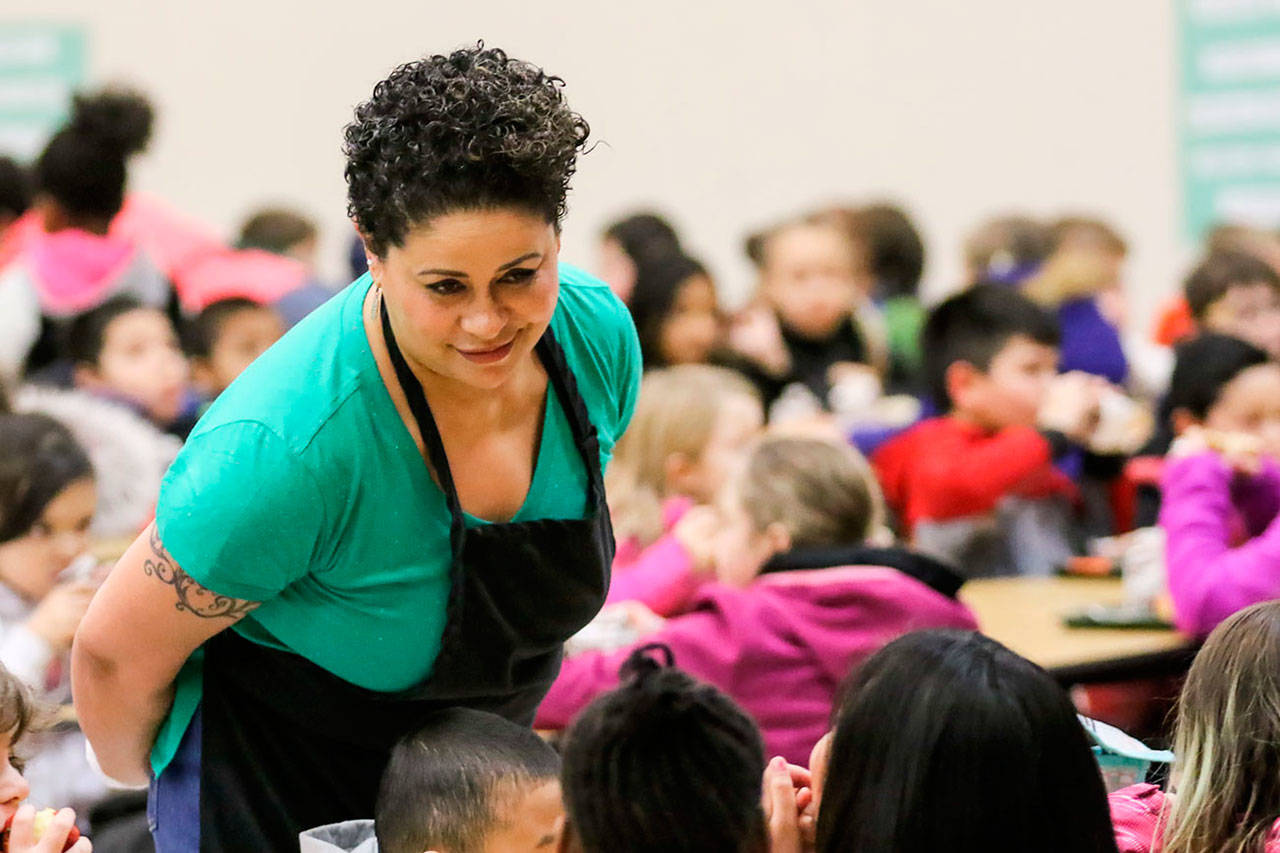By The Herald Editorial Board
In a couple of weeks, parents of school-age children will begin their own summer vacation, taking a break from filling lunchboxes or digging out money for breakfast or lunch.
The bottom line at some school districts suggests some parents may have already been taking a break from paying for meals their kids have charged at school.
As reported by The Herald’s Eric Stevick, parents in three school districts — Mukilteo, Monroe and Snohomish — had a combined tally of $225,000 in unpaid meals as of the first week of June, much of that owed by parents whose students either don’t qualify for the federal government’s free or reduced-price school meals program or haven’t applied for the benefit.
School districts in Washington state are allowed to set their own policies on allowing students to charge meals and how to address debts, and those policies vary district to district.
No district in Snohomish County, thankfully, has taken the spartan step of yanking away meals from kids whose parents are carrying a tab or have tried to get parents to pay up by shaming them through punishment of their children. Instead, local districts are making the responsible choice to make sure kids, regardless of what is owed, get some kind of meal.
The Stanwood-Camano School District, which has shouldered a relatively modest debt of $874, allows elementary school students to charge up to two breakfasts and two lunches. After that, if the money owed isn’t paid, the children are offered a cheese sandwich and a carton of milk. Older students can’t charge meals at all, but do get the sandwich and milk.
Other districts are more lenient about allowing parents to carry a tab, though the debts can accumulate and have to be paid before the end of the senior year to receive a diploma or grade transcript, as is the policy for the Monroe School District.
Recently, the generosity of community members has paid on debts in several districts, including that of a Marysville couple, Tom and Christy Lee, who paid the accounts of 262 students in 10 of the Marysville district’s schools, a total of $5,495. Other districts have seen donations made to cover a portion of the unpaid meals or seen gofundme.com accounts set up to take donations for unpaid meals.
Parents who have benefited from those donations, especially those who have had the financial ability to pay all along, should feel encouraged — not shamed — to pay that generosity forward.
And there are those families who otherwise would qualify for free or reduced-priced meals for their children, but may feel embarrassed about applying through their school district. Children are eligible for the meal subsidy program if their family’s income is at or below 130 percent of the federal poverty line, about $32,000 for a family of four. Those families, too, should not feel shame in signing their children up to ensure them good nutrition.
To make sure parents understand the policy of their kids’ schools, the U.S. Department of Agriculture is requiring school districts to outline their practices on charging meals and collecting for unpaid meals and communicating those policies to parents and guardians.
And there’s a responsibility too for all to make sure that the federal government continues its support of school nutrition programs.
While the Trump administration is seeking disturbing cuts to the Supplemental Nutrition and Assistance Program, otherwise known as food stamps, it has not proposed cuts to the national school lunch or breakfast programs, allocating modest increases for both programs that total $17.8 billion in the U.S. Department of Agriculture’s budget.
However, House Republicans in Congress targeted that assistance as recently as last year when they proposed increasing the eligibility requirements for a program that provides free meals to all students in school districts with a high percentage of families eligible for the benefit.
Nor was President Trump’s budget director, Mick Mulvaney, reassuring earlier this spring when, in attacking funding for after-school programs, he discounted the connection between kids’ nutrition and their performance in class: “They’re supposed to help kids who don’t get fed at home get fed so they do better in school. Guess what? There’s no demonstrable evidence that they’re actually doing that.”
Guess what? There is. A heaping plateful of evidence, starting with a 1988 study of Boston schoolchildren, found a direct tie between academic performance and an expansion of a school breakfast program. Since then, similar findings have been documented repeatedly by research university studies and by government agencies, including a 2014 study by the Centers for Disease Control and Prevention, as reported recently by The Guardian.
From the CDC report: “Student participation in the (USDA’s) School Breakfast Program is associated with increased academic grades and standardized test scores, reduced absenteeism, and improved cognitive performance.”
While Mick chews on that, officials, parents and community members should also keep that connection between nutrition and success in school in mind and make sure there’s a place at the table for all kids.
Talk to us
> Give us your news tips.
> Send us a letter to the editor.
> More Herald contact information.

























